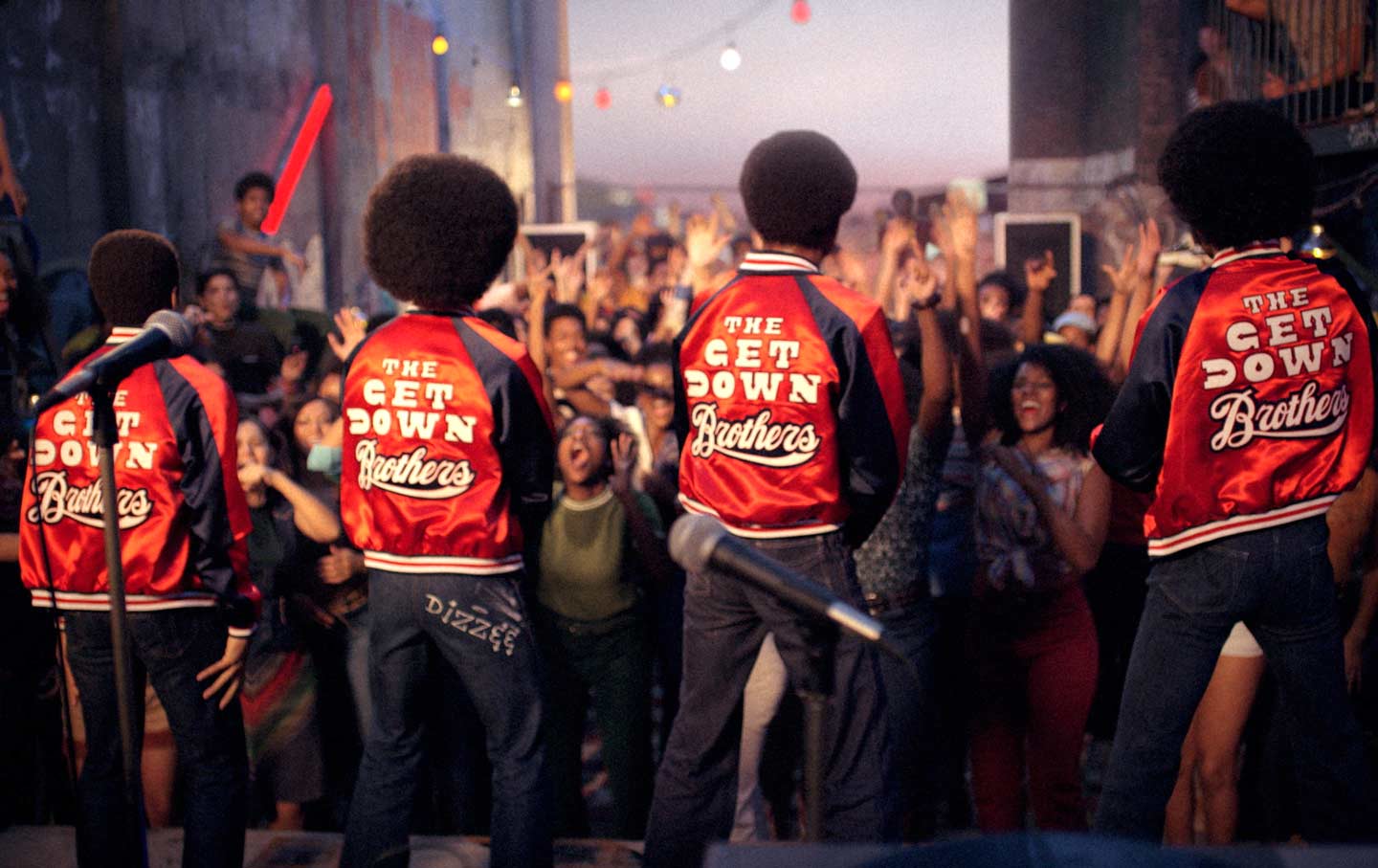Writing in The Nation, poet and theorist Joshua Clover teases out the momentous origins and endings depicted in Baz Luhrman’s recent Netflix series The Get Down, which traces the rise of hip hop in the South Bronx of the late 1970s. Clover writes that even as the show goes to great lengths to depict the moments of proletarian artistic creation that gave birth to hip hop, the historical backdrop of the show is an American capitalism that was starting to disintegrate. And this disintegration continues apace today. Here’s an excerpt from Clover’s piece:
These are the two limits the show runs up against: representing crisis and representing origins. But these are one and the same. The show’s outsized claim is that the sum of black and Latin pop aesthetics arises from the destruction of the South Bronx and more broadly from the uneven catastrophe unleashed by crisis. The proliferation of beginnings marks the beginning of the end for US expansion, US power. The underclasses, the vulnerable, people of color: They all bore more of the weight. The Bronx burned. But the center could not hold. Beyond the imperial core (here played by Manhattan), the wasted peripheries hosted an incomparable artistic flourishing. Our romantic leads, having fantasized about making it to Manhattan just like Tony Manero, finally let that dream go. It’s as if they know what Tony Manero can’t: Manhattan’s not even there anymore.
To say anything has ended is always a wager against persistence, inertia, power. It’s a wager worth making. Things end. It may be wise to look back on that moment—the one that begets our own endless proliferation of rubble and fatal stagnation—and say it’s never going to get better than that. The period from 1977 to 2007, Get Down to iPhone, was the cresting of a peak, a remixed and extended descent, the cut-up 12″ of disaster. We could enjoy its last emulsions, its closing beats, the outro. We could make America great again. We could insist it’s still great. Or we could see these are both charades and fight like hell for something else, for what comes next.
Still from The Get Down via The Nation.
